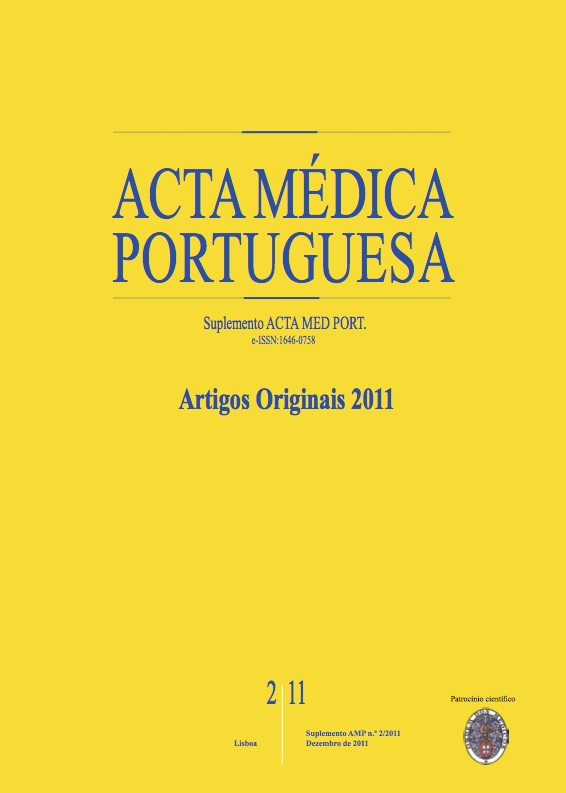Teaching evidence-based public health to Portuguese medical students: results from a questionnaire to assess learning objectives and teaching methods.
DOI:
https://doi.org/10.20344/amp.1447Abstract
The need to teach evidence-based public health to undergraduate medical students is clearly established. Following the Bologna reforms under way in many European universities and their medical schools, there is a recognised need to monitor teaching methods and their results (learning objectives). Within this framework, a new Public Health study unit was introduced in the fifth year of the Master in Medicine in a Portuguese Medical School (Instituto de Ciências Biomédicas Abel Salazar), in 2007.At the end of the final written exam, a specifically developed questionnaire was given to all students to be completed anonymously. The questionnaire covered the areas of learning objectives and teaching methods and formats.After an account of the contents and teaching methods used in the course unit, this paper will focus on the description and discussion of the results of a questionnaire, used in the academic years of 2008/2009 and 2009/2010. All students attending the final exams (n = 268) in these two years, succeeded in the study unit. From the 213 valid questionnaires it can be concluded that initially proposed learning objectives were successfully achieved. Moreover, final reported levels of competency were high for most objectives. The students preferred active teaching methods, such as group presentation and discussion, compared with passive approaches (eg classical lecture).This study has methodological limitations, most of which derive from the use of a self-completed questionnaire that has not been previously validated. Nevertheless, results seem to show the success of the study unit, pointing to needed studies in the future. Teaching evidence-based public health to undergraduate medical students can be further assessed in the future.Downloads
Downloads
How to Cite
Issue
Section
License
All the articles published in the AMP are open access and comply with the requirements of funding agencies or academic institutions. The AMP is governed by the terms of the Creative Commons ‘Attribution – Non-Commercial Use - (CC-BY-NC)’ license, regarding the use by third parties.
It is the author’s responsibility to obtain approval for the reproduction of figures, tables, etc. from other publications.
Upon acceptance of an article for publication, the authors will be asked to complete the ICMJE “Copyright Liability and Copyright Sharing Statement “(http://www.actamedicaportuguesa.com/info/AMP-NormasPublicacao.pdf) and the “Declaration of Potential Conflicts of Interest” (http:// www.icmje.org/conflicts-of-interest). An e-mail will be sent to the corresponding author to acknowledge receipt of the manuscript.
After publication, the authors are authorised to make their articles available in repositories of their institutions of origin, as long as they always mention where they were published and according to the Creative Commons license.









